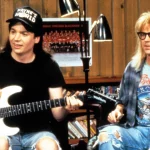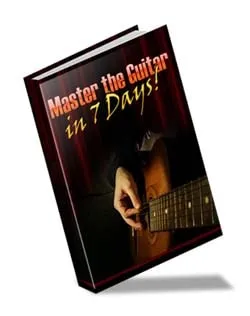If you had enough time and energy you could figure out everything you need to know in order to play guitar really well. Many players, old blues masters, for example did exactly that; they learned a little bit of “how things work” and experimented around the fingerboard until they got the sound they liked. That works great, up to a point.

Do you need to learn music theory to play guitar?
Music theory is another of those topics with almost no end to what you can learn. You certainly don’t need a thorough understanding of advanced music theory to become a skillful guitarist. Just consider the old blues masters for a moment, they easily learned the 12 bar blues pattern and figured out what sounded good to them.
Some of these masters of the blues are Lightnin’ Hopkins, Blind Lemon Jefferson, Leadbelly, Blind Willie McTell, and Robert Johnson and many others. Many of their songs are still being covered by bands to this day!
So, the big question is: “Do I need music theory to play guitar?” My official answer is: “No, you do not need music theory to play guitar.”
However, don’t confuse “need” with “will this help me”. You might not need to know how grammar well to be converse in a foreign language, but you absolutely need to know grammar to become fluent. It is exactly the same with music.
If you want to play basic blues, folk music, country or bluegrass you can do just fine with a minimum of music theory. You gradually learn some basics anyway because of the need to communicate with other players. Even knowing what key you are playing in, or what the I, IV, V and relative minor chords are in different keys is music theory in practice.
Music theory is really just an attempt to describe what somebody has sung or played on an instrument. Knowing the language of writing down music can enhance your understanding and make learning easier. Ignorance is not a virtue!
Reasons why learning music theory can help you play better guitar
- Help you learn by ear
- Expands your creative possibilities
- You can write your own music
- Helps you communicate with other musicians
- Guides your experimentation (noodling)
- Helps you quickly know what chords and voicings will work
- Enables you to play various styles quickly
- Opens up shortcuts for improvising
- Enables you to more easily play with other instrumentalists
- Provides a shortcut to learn harmonies
- Helps you more quickly understand the fretboard
You should know this basic music theory
- The musical alphabet
- Staff notation
- Clefs
- Key signatures
- Staff markings
- Time signatures
- Rhythm
- Sight reading
More basic music theory topics
- Tablature notation
- Guitar chord charts
- Harmonies
- Modal music
- Circle of 5ths
- Passing chords
- Voicings
- Scales
Recommended Sources For Learning Music Theory For Guitar
ArtistWorks
Features Video Exchange and virtuosos
Homespun
Features Dozens Of Artists
Guitar Tricks
Every style you can imagine
Gibson Learn & Master
DVD’s for learning
- Is not a substitute for actual practice.
- Theory alone won’t make you a better guitarist
- Learning theory will not stifle your creativity
Never forget that theory serves the music; the music comes first. Music theory is an attempt to explain music, a way to try and communicate what an instrument or voice has done.




 Sign up to receive a free ebook: Master The Guitar in 7 days! (available for a limited period)
Sign up to receive a free ebook: Master The Guitar in 7 days! (available for a limited period)